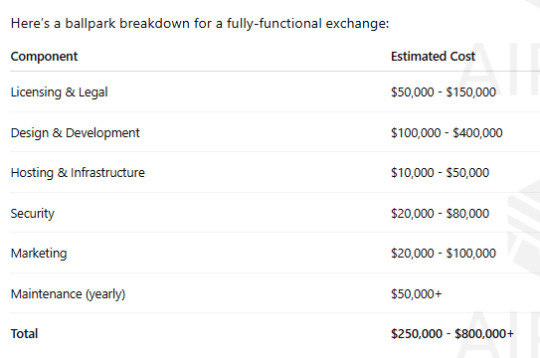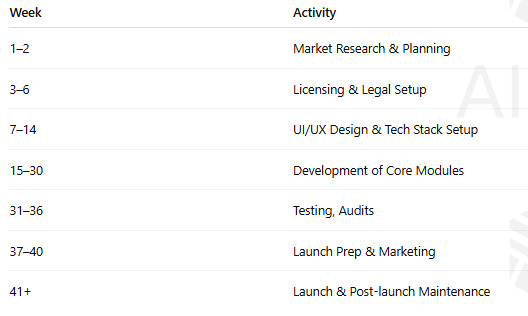#hire golang developers
Explore tagged Tumblr posts
Text
Hire Golang Developers: Elevate Your Software Development

Looking to build robust and high-performance applications? Hire Golang developers who excel in creating efficient, scalable, and reliable solutions. Discover the benefits of using Go, a language designed for concurrency and simplicity, and find the right talent to bring your project to life.
2 notes
·
View notes
Text
Hiring a Golang Developer vs. a Python Developer: Which Is Better for Your Startup?

Every choice you make when starting a business is crucial, but hiring the right staff and using the right technology are particularly important. Since backend development is the foundation of your product, choosing the appropriate language and developer is not just a technical but also a strategic decision.
Both Golang and Python have advantages over one another. However, one might be better suited for your needs based on speed, concurrency, simplicity, or scalability. This guide will assist you in making a decision based on the requirements of your startup if you are unsure whether to hire Python or Golang developers.
Speed vs. Flexibility: Choosing the Right Backend Language for Your Startup’s Success
Golang for Performance and Scalability
Google created Golang, commonly referred to as Go, to efficiently manage high-concurrency systems. Golang might be the best option for your firm if you're concentrating on creating performance-critical systems, such as streaming services, real-time APIs, or microservices.
Hiring Golang developers is an investment in speed. Because Go is statically typed and built, it executes more quickly and produces fewer runtime errors. Go is rapidly becoming the backend standard for tech businesses managing large-scale infrastructure or striving for cloud-native architecture.
Python for Flexibility and Rapid Development
In contrast, Python is the preferred language for automation, data science, artificial intelligence, and fast prototyping. It is easy for beginners to understand, legible, and backed by a vast library environment. Hiring Python developers makes sense if your firm has limited development resources or is focused on analytics or machine learning.
Python is a great choice for MVPs. You can quickly test features, iterate, and change course in response to user input. Although Python may not be as fast as Golang, many software companies find the flexibility it provides to be worth the trade-off.
Backend Talent: What to Prioritize
Evaluating their backend skills is crucial, regardless of whether you choose to work with Python specialists or Golang engineers. It is crucial to comprehend security protocols, database architecture, and API design. The way developers design and scale systems is just as important as syntax.
This is where when you hire backend developers they can address problems in any language. Before reducing their stack, some firms even hire multilingual developers to meet initial product demands.
Hiring Considerations for Startups
Hiring expenses are important for startups that are bootstrapped. Due to their greater availability, Python coders may be easier to locate and more reasonably priced. Though they are less common, Golang engineers frequently contribute high-performance knowledge that is perfect for long-term scalability.
Remember that while Golang's skill pool is still developing, both communities are expanding. Expect to work a little more if you decide to hire Golang developers, but the performance benefits can make the effort worthwhile.
Summary
There isn't a single, universal solution. Employ Python developers if you require quick development and adaptability. It's time to hire Golang developers if you are creating scalable backend systems with a focus on performance. Whichever option you use, make sure the developer's experience matches the objectives of your product.
An increasing number of software businesses are combining the two languages, utilizing Python where agility is important and Golang for applications that require speed. It all comes down to carefully and strategically laying the proper foundation.
0 notes
Text
Learn how to attract and retain top Golang talent with Cerebraix. Discover expert tips for building your dream team. Elevate your projects with the best in the industry.

0 notes
Text
Everything You Need to Know before Hiring a Golang Developer in 2024
Everything You Need to Know before Hiring a Golang Developer in 2024
Here are some key points to consider when hiring a Golang developer in 2024:
Golang Overview
Golang (Go) is an open-source, statically typed, and compiled programming language designed for building simple, reliable, and efficient software. It was developed at Google in 2007 and became open-source in 2009. Go is known for its simplicity, concurrency support, fast compilation times, and strong typing.
Go's Popularity and Use Cases
Go has seen a steady rise in popularity over the years, particularly in areas like cloud/server-side applications, command-line tools, DevOps and site reliability engineering tools, APIs and web services, and distributed systems. Major companies using Go include Google, Uber, Dropbox, Netflix, and many more.
Skills to Look for in Go Developers
Strong understanding of Go syntax, data types, control structures, and concurrency primitives (goroutines, channels).
Experience with Go's standard library and common third-party packages (e.g., for web development, database interaction, testing).
Familiarity with Go tooling (e.g., go build, go test, go fmt, etc.) and code organization practices (e.g., using Go modules).
Knowledge of concurrency patterns, synchronization primitives, and practices for writing concurrent and parallel code in Go.
Proficiency in writing clean, idiomatic, and testable Go code following best practices.
Familiarity with Go's performance characteristics and optimization techniques.
Experience with Go web frameworks (e.g., Gin, Echo, Revel) if building web applications.
Understanding of Go's security features and secure coding practices.
Hiring Process and Evaluation
Review candidate's portfolio, past projects, and contributions to open-source Go projects (if any).
Conduct coding interviews or take-home assignments to assess practical Go skills and problem-solving abilities.
Evaluate understanding of Go concurrency patterns, performance optimization, and best practices.
Assess familiarity with relevant tools, frameworks, and libraries based on your project requirements.
Consider the candidate's ability to learn and adapt, as Go and its ecosystem continue to evolve.
Salaries and Demand for Go Developers
The demand for skilled Go developers is expected to remain high in 2024, as more companies adopt Go for its simplicity, performance, and concurrency benefits. According to various salary surveys, the average salary for a Go developer in the United States can range from $90,000 to $140,000 or more per year, depending on experience, location, and specific role.
By carefully evaluating candidates' Go skills, experience, and problem-solving abilities, you can hire talented Golang developers who can contribute effectively to your projects in 2024 and beyond.
0 notes
Text
1 note
·
View note
Text
Golang Project Ideas That Will Make Your Portfolio Scream "Hire Me!"

Golang, also known as Go, is an open-source programming language developed by Google. It is designed to be simple, efficient, and reliable, making it a popular choice among developers. One of the best ways to learn Golang is by building projects that allow you to apply your knowledge in a practical way.
By working on Golang projects, you can gain hands-on experience, understand different concepts, and improve your problem-solving skills. Whether you're a beginner looking to get started with Golang or an experienced developer seeking to enhance your expertise, these project ideas will provide the perfect opportunity to explore the language and push your boundaries.
Top 7 Golang Project Ideas
1. Create a Simple Web Server
Building a web server is an excellent project for beginners to get started with web development in Golang. Start by setting up a server that can handle HTTP requests and serve responses back to clients. Use the built-in "net/http" package in Golang to handle routing, HTTP methods, query parameters, and serving static files. This project will give you hands-on experience in web development and help you understand the fundamentals of building web servers.
2. Develop a To-Do List App
A To-Do List app is a classic project idea that allows you to create a simple application while learning important Golang concepts. Build features to add, delete, and track tasks, utilizing data structures and user input handling. This project will enhance your skills in developing command-line applications and give you a practical understanding of managing tasks efficiently.
3. Build a URL Shortener
Develop a web application that converts long URLs into shortened versions, making it easier to share links. This project will give you hands-on experience in web development using Golang. You'll learn how to handle HTTP requests, interact with databases, and build a useful tool that can be utilized in various contexts.
4. Create a File Encryption/Decryption Tool
Build a tool that utilizes different encryption techniques to encrypt and decrypt files. Users should be able to select the encryption technique and supply the file they want to encrypt or decrypt. This project will enhance your understanding of encryption algorithms, file handling in Golang, and command-line argument parsing.
5. Develop a CRUD API
Creating a CRUD (Create, Read, Update, Delete) API is a common project for backend developers. Build a RESTful API using Golang that can perform all CRUD operations on a database. Implement basic authentication and validation of user input to ensure data integrity. This project will give you hands-on experience in building APIs, handling HTTP methods, and JSON serialization and deserialization.
6. Build an Artificial Intelligence Chatbot
Take your Golang skills to the next level by building an AI-powered chatbot. Integrate machine learning and natural language processing technologies to create a bot that can understand and respond to user queries. Train your bot using machine learning libraries like TensorFlow or PyTorch and natural language processing libraries like NLTK or SpaCy. This project will allow you to explore the fascinating world of AI and develop a functional and responsive chatbot.
7. Create a Real-Time Messaging Application
Build a real-time messaging application using Golang and WebSockets. Users should be able to send and receive messages instantly, creating a seamless communication experience. This project will enhance your understanding of WebSockets, event-driven programming, and real-time applications.
Wrapping Up
Embarking on Golang projects is an exciting way to enhance your skills and explore the vast possibilities of the language. Whether you're a beginner or an experienced developer, these top 7 Golang project ideas will challenge your coding abilities and push you to new heights. Choose a project that aligns with your interests and start building today!
Now, it's time to unleash your creativity, dive into these Golang project ideas, and take your coding skills to new heights. Happy coding!
0 notes
Text
Build a Crypto Exchange from Scratch: Tech, Time & Budget Guide

So, you’ve got your eyes on the booming crypto industry and are thinking, “Why not build a crypto exchange of my own?” Well, you're not alone—and you're not wrong. With cryptocurrencies now a mainstream financial asset, launching a crypto exchange can be a goldmine. But here's the kicker: it's no walk in the park. Between regulations, tech complexities, and budget planning, there’s a lot to unpack. That’s why this guide exists—to walk you through everything step-by-step. Let’s get into it.
What is a Crypto Exchange?
At its core, a crypto exchange is a digital marketplace that lets people buy, sell, and trade cryptocurrencies. Think of it like a stock exchange, but for Bitcoin, Ethereum, and other digital assets.
There are two main types of exchanges:
Centralized (CEX): A third party manages the trades and assets.
Decentralized (DEX): Trades occur directly between users, without intermediaries.
Why Start Your Own Crypto Exchange?
Launching an exchange isn’t just about riding the crypto wave—it’s about building a sustainable, revenue-generating business.
Here’s how you make money:
Trading Fees: Small cuts per transaction. Multiply that by thousands of trades per day.
Listing Fees: Charge projects to list their tokens.
Premium Features: API access, margin trading, analytics dashboards.
Bottom line: the profit potential is high if you play it right.
Step 1 – Define Your Exchange Type
Before writing a single line of code, decide what type of exchange you want to build.
Centralized Exchange (CEX)
Pros:
Easier user onboarding
High liquidity
Faster transactions
Cons:
Prone to hacks
Requires strict regulation
Use case: Ideal for beginners or regions with established financial laws.
Decentralized Exchange (DEX)
Pros:
No need for user data (privacy)
No custody of funds
Cons:
Harder UX
Limited trading pairs
Use case: Perfect for DeFi audiences and privacy-focused traders.
Hybrid Exchange
Combining the liquidity of CEXs with the privacy of DEXs. Though complex to build, this model is gaining traction.
Step 2 – Regulatory Compliance & Licensing
Let’s face it—crypto has a bit of a reputation problem. That’s why regulation matters.
Choosing a Jurisdiction
Want fewer headaches? Pick countries known for crypto-friendly policies:
Malta
Estonia
Switzerland
Singapore
Cost of Licensing
Malta: $30,000 - $70,000
Estonia: $15,000 - $35,000
USA: Up to $500,000 depending on state licenses
Get legal counsel. It’s worth every penny.
Step 3 – Core Features of a Crypto Exchange
No one wants a clunky platform. Your exchange must be sleek, secure, and fast.
User Interface (UI)/User Experience (UX)
Clean dashboards, simple navigation, and responsive design. Mobile-ready? Absolutely.
Trading Engine
This is the brain of your exchange. It handles:
Order matching
Trade execution
Transaction history
Milliseconds matter here.
Wallet Integration
Use hot wallets for quick access and cold wallets for secure storage.
Security Features
Security is non-negotiable:
SSL encryption
2FA
Anti-DDoS
IP Whitelisting
Admin Panel
For your team to manage users, review transactions, and control settings.

Step 4 – Choose the Right Tech Stack
Here’s your digital toolbox. Pick wisely.
Backend Technologies
Popular choices:
Node.js
Python
Golang
They offer high performance and scalability.
Frontend Technologies
Make it look good and feel good:
React.js
Vue.js
Angular
Blockchain Integration
Connect with:
Ethereum
Binance Smart Chain
Polygon
You’ll need APIs or smart contracts, depending on the setup.
Step 5 – Hiring a Development Team
DIY is great for furniture, not crypto exchanges.
In-house team: More control but costlier.
Outsourcing: Cost-effective, especially in India, Ukraine, or Vietnam.
Cost Estimate
MVP Exchange: $50,000 - $150,000
Full-fledged Platform: $200,000 - $500,000+
Timeframe: 6 to 12 months
Step 6 – Designing the Architecture
Your platform should be:
Scalable (handle growth)
Modular (easier to update)
Fault-tolerant (avoid downtime)
Use cloud services like AWS or Google Cloud for infrastructure.
Step 7 – Testing & Security Audits
Before you go live, test everything. And then test it again.
Load Testing
Penetration Testing
Bug Bounties
Smart Contract Audits (for DEXs)
Better safe than hacked.
Step 8 – Marketing & Launch Strategy
Even the best exchange is useless without users.
Listing Initial Coins
List popular coins like BTC, ETH, and USDT. Then add new tokens to draw attention.
Incentive Programs
Airdrops, sign-up bonuses, referral bonuses. Get creative. Build hype.
Also consider:
PR Campaigns
Community Building (Telegram, Discord)
Influencer Outreach
Maintenance and Upgrades
The crypto space evolves fast. Your exchange must too.
Regular patches
Feature rollouts
Security updates
Consider launching a mobile app for broader reach.
Cost Breakdown

Timeline Overview
A realistic timeline might look like this:

Conclusion
Building a crypto exchange from scratch isn’t just about slapping together some code and flipping a switch. It’s a meticulous journey through regulatory hurdles, technical architecture, and business strategy. But if you get it right, it’s one of the most lucrative ventures in the digital finance world. So, whether you're a startup or a fintech giant, the roadmap is here—you just need to follow it.
FAQs
1. Can I build a crypto exchange without coding knowledge?
Technically yes, with white-label solutions. But for full control and scalability, you’ll need developers or a dev agency.
2. How do crypto exchanges make money?
Mainly through trading fees, listing fees, and premium service offerings like APIs or advanced analytics.
3. What licenses do I need to launch a crypto exchange?
That depends on your target market. Countries like Malta and Estonia offer favorable regulatory environments for crypto businesses.
4. How long does it take to launch a crypto exchange?
A basic platform can go live in 4-6 months. A more sophisticated, scalable exchange might take 9-12 months.
5. Is it safe to build and operate a crypto exchange?
Yes—if you invest in strong security infrastructure, conduct regular audits, and comply with all legal requirements.
#CreateACryptocurrencyExchange#HowToCreateACryptocurrencyExchange#BuildYourOwnCryptocurrencyExchange#LaunchYourCryptocurrencyExchange#CryptocurrencyExchangeDevelopment#ShamlaTech#CryptoExchange#BlockchainSolutions#CryptoBusiness#CryptoDevelopment
0 notes
Text
Top Programming Languages for Web App Development in 2025

In 2025, Web App Development continues to evolve rapidly, with businesses seeking high-performing, scalable, and secure digital solutions. Whether you're a startup looking for MVP development or an enterprise modernizing legacy systems, choosing the right programming language can significantly affect your application's success. As a Web App Development Company in the UK, we understand that the tech stack determines not just performance but also the Web App Development Cost, team scalability, and future maintenance.
1. JavaScript and TypeScript: Still Reigning Supreme
JavaScript remains the backbone of modern web apps. Combined with powerful frameworks like React, Angular, or Vue.js, it ensures rich UI/UX experiences. TypeScript, a superset of JavaScript, has gained huge traction in 2025 due to its static typing and better scalability for larger projects. If you're planning to hire Web App Development developers, a JavaScript- or TypeScript-based stack is a safe, future-proof choice.
2. Python: Great for Rapid Development
Python continues to be a go-to choice for startups and SMEs due to its simplicity and wide community support. Frameworks like Django and Flask enable fast development with clean, maintainable code. Python is particularly useful for integrating AI and ML capabilities into web apps—an area many Web App Development companies are focusing on this year.
3. Ruby: Ideal for MVPs and Agile Web Development
Ruby, particularly Ruby on Rails, is still favored for rapid MVP development and agile web projects. It’s perfect for businesses that want to launch quickly and iterate based on user feedback. As a Web App Development Service, we often recommend Ruby to clients with evolving product visions and short go-to-market timelines.
Book an Appointment with Our Experts
Let’s discuss your project requirements, budget, and timeline to help you choose the best language and tech stack.
4. Go (Golang): The Performance-Oriented Choice
Go is gaining popularity for backend development where performance and concurrency are critical. Companies that need scalable microservices and high-performing APIs are increasingly turning to Go. If you're aiming to optimize backend speed without sacrificing developer productivity, Go is worth considering.
5. PHP (with Laravel): Still Relevant in 2025
While PHP may seem outdated to some, frameworks like Laravel have kept it modern and efficient. It's a solid option for content-driven websites, CRMs, and small to medium-sized web applications. Many Web App Development Companies still rely on PHP for specific types of projects due to its stability and large pool of available developers.
6. Kotlin and Swift (for Cross-Platform Web & Mobile)
Though traditionally mobile languages, Kotlin (with Kotlin Multiplatform) and Swift are now seeing some traction in full-stack and cross-platform environments. They are emerging in hybrid Web App Development Services where seamless interaction between mobile and web platforms is critical.
How to Choose the Right Language?
Choosing the right programming language depends on:
The type of application (MVP, enterprise-grade, eCommerce, etc.)
Your budget and timeline
Availability of developers
Long-term maintenance
That’s why working with an experienced Web App Development Company can make all the difference. A reliable partner will help balance tech choices with business goals and offer transparent Web App Development Cost estimates.
Whether you're looking to hire Web App Development developers for a custom solution or want a complete product built from scratch, it's crucial to align your language and framework choice with your growth strategy. Our Web App Development Company in the UK offers tailored Web App Development Services that fit your needs, budget, and long-term vision.
0 notes
Text
Startups: Hire Expert Golang Developers Fast with Vistabench
As a startup founder or tech lead, you know how crucial it is to find the right developer—especially when building scalable web pages, APIs, and software products. Golang (Go), known for its simplicity, performance, and concurrency support, has become the go-to programming language for modern, high-performance applications.
But hiring a skilled Golang developer isn’t easy. Screening hundreds of resumes, conducting technical interviews, and verifying experience can drain your time and resources—when you’d rather be building and growing your product.
That’s where Vistabench comes in.
🚀 Why Vistabench Is the Smart Choice for Startups
Vistabench is a hiring platform designed to connect startups with expert, pre-vetted developers—including those specialized in Golang—within 24 hours. Whether you need someone to build back-end systems, APIs, or full-fledged web products using Go, we’ll match you with a developer tailored to your exact needs.
🔍 What You Get with Vistabench
Skilled Golang Developers Our developers are experienced in building scalable web applications, APIs, and backend services using Go. Many also bring expertise in frameworks like Gin, Echo, and database integration with PostgreSQL, MongoDB, and more.
Immediate Joiners All our developers are available to join quickly—perfect for startups that need to move fast.
Flexible Work Models Choose developers who work on-site, hybrid, or fully remote—depending on what fits your team and workflow.
Contract-Based (C2C) Hiring We operate on a Corp-to-Corp (C2C) model, which gives you flexibility in expanding your team without long-term commitments. Whether you need one developer or a full team, we can support your hiring needs.
No More Resume Screening Forget the hours spent reviewing CVs. Just share your job description, and we’ll handle the vetting, interviews, and shortlisting. You simply pick the best fit and send the onboarding link.
✅ Ideal for Startups Like Yours
Whether you're launching your MVP, scaling your SaaS product, or building out an internal platform, hiring a reliable and skilled Golang developer is critical. Vistabench understands the speed and flexibility startups require—and we deliver just that.
Our mission is simple: connect you with top-tier tech talent without the hiring headache.
🌐 Get Started Today
Hiring shouldn’t slow down your startup’s momentum. Let Vistabench provide the talent while you focus on innovation.
👉 Browse www.vistabench.com and find your ideal Golang developer—fast, flexible, and ready to build.
0 notes
Text
Choosing the Right Tech Stack for Your SaaS Startup in 2025

Launching a SaaS startup in 2025 presents incredible opportunities—but also steep competition and technical complexity. At the core of every successful SaaS product lies one critical decision: choosing the right tech stack. This choice directly impacts your application's scalability, performance, development speed, and long-term maintainability. As innovation accelerates and user expectations grow, aligning with the right tools and technologies becomes even more crucial. That's why leading SaaS software development companies are focusing on modern, flexible, and efficient stacks to help startups future-proof their products.
In this blog, we’ll break down what a tech stack is, key considerations for making the right choice in 2025, and which stacks are trending. Whether you're bootstrapping or seeking funding, understanding your tech foundation is essential for long-term success.
What Is a Tech Stack?
A tech stack refers to the set of technologies used to build and run a software application. It typically includes:
Frontend technologies: What users interact with (e.g., React, Vue, Angular)
Backend technologies: Handles logic, database operations, and APIs (e.g., Node.js, Django, Ruby on Rails)
Database systems: Where data is stored and managed (e.g., PostgreSQL, MongoDB, MySQL)
DevOps tools: For deployment, monitoring, and scaling (e.g., Docker, Kubernetes, Jenkins)
Your stack choices affect everything from development speed to product performance and even your team's ability to scale quickly.
Key Factors to Consider When Choosing a SaaS Tech Stack
Choosing a tech stack isn’t just a matter of picking popular frameworks. It requires a strategic approach that factors in both your short-term goals and long-term product roadmap.
1. Scalability
Can your stack handle increased load as your user base grows? Scalability must be baked in from the beginning. Cloud-native stacks and microservices architecture are popular choices in 2025 for their ability to scale horizontally with ease.
2. Time to Market
Speed is everything for SaaS startups. Tech stacks with extensive libraries, rich documentation, and large developer communities (like JavaScript frameworks or Python-based platforms) enable faster MVP development and iteration.
3. Developer Availability
Choosing niche languages or frameworks may limit your hiring pool. Opt for technologies with a large, active community to make future hiring and team expansion easier.
4. Security
Security is non-negotiable in SaaS. Your stack should support encryption, secure APIs, and compliance with standards like GDPR, HIPAA, or SOC 2—depending on your target market.
5. Cost
The total cost of ownership includes not only development but also hosting, scaling, and maintenance. Some platforms (e.g., Firebase) offer great starter plans, but may become expensive at scale. Use tools like a SaaS cost calculator to estimate long-term infrastructure and development costs.
Popular Tech Stacks for SaaS Startups in 2025
Here's a breakdown of some modern stacks popular among high-performing SaaS startups in 2025:
1. MERN Stack (MongoDB, Express, React, Node.js)
Strengths: Full JavaScript stack, large community, great for real-time apps
Best for: Single-page applications, fast MVPs
2. Jamstack (JavaScript, APIs, Markup)
Strengths: Fast, secure, and SEO-friendly
Best for: Static sites, headless CMS, marketing-heavy SaaS platforms
3. Serverless Architecture (AWS Lambda, Azure Functions, Google Cloud Functions)
Strengths: Minimal server management, pay-per-use
Best for: Startups focused on reducing infrastructure costs and scaling automatically
4. Python + Django + PostgreSQL
Strengths: Quick prototyping, clean code, robust ORM
Best for: SaaS tools needing strong data integrity, admin dashboards
5. Go (Golang) + React + Kubernetes
Strengths: High performance, great concurrency, scalable microservices
Best for: SaaS platforms with high-performance requirements or complex workflows
Need Expert Help Choosing Your Tech Stack?
👉 Book an Appointment Get tailored advice from our SaaS tech architects. Whether you're starting from scratch or revamping your current product, we can help align your business goals with the most efficient stack.
Mistakes to Avoid When Choosing Your Tech Stack
❌ Over-Engineering the MVP
It’s tempting to build for scale from day one, but doing so can delay your time to market. Focus on the fastest path to MVP with scalability in mind—but don’t overcomplicate.
❌ Following Hype, Not Need
Just because a new framework is trending doesn’t mean it’s right for your product. Assess each tool’s pros and cons in the context of your specific needs.
❌ Ignoring Team Expertise
Your current team's skills are a major asset. Choosing a stack outside their expertise can result in delays, bugs, and unnecessary training costs.
The Role of SaaS Software Development Companies
Choosing your stack is just the beginning. The real value lies in how efficiently you can execute your product vision using those technologies. SaaS software development companies specialize in helping startups navigate the tech landscape by:
Offering experienced developers familiar with modern SaaS architecture
Providing strategic consulting for scalability, security, and integrations
Accelerating MVP launches with tried-and-tested frameworks
Delivering full-cycle development from ideation to post-launch support
In 2025, agility and technological precision are the keys to success in the SaaS world. By partnering with the right development team and selecting a well-aligned tech stack, you can focus on what matters most—solving real problems for your users.
Final Thoughts
Your tech stack will shape the trajectory of your SaaS startup. It affects how fast you ship features, how your app performs under load, and how easily you can scale your team and product. Don’t rush the decision. Take a holistic view—factor in development speed, security, hiring flexibility, and long-term cost implications.
Whether you choose the classic MERN stack or go serverless with cutting-edge tools, what matters most is making an informed, forward-looking decision. With guidance from experienced partners and a clear vision of your product roadmap, you can confidently set your SaaS business up for long-term success.
To do it right, consider working with top-tier SaaS software development firms that not only understand code but also the business logic behind building scalable, resilient, and profitable SaaS platforms.
0 notes
Text
Decoding the Golang Developer’s Resume: What Every Recruiter Should Know
Decoding the Golang Developer's Resume: Essential Insights for Recruiters - Learn what to look for in a Golang developer's resume to make informed hiring decisions. Discover key skills, experiences, and qualifications that top candidates possess. Read more on Cerebraix.
0 notes
Text
Top Technologies to Hire Dedicated Developers in India
Hiring dedicated developers in India is a strategic decision for startups, SMBs, enterprises, and tech firms worldwide. India has established itself as a global leader in software development, offering a vast talent pool, cost-effective solutions, and expertise in cutting-edge technologies. Companies looking to hire dedicated developers in India benefit from affordability, expertise, and seamless collaboration with offshore development teams.

However, navigating the hiring landscape while balancing cost, quality, and project execution can be challenging. This guide will help you identify the best technologies to hire dedicated developers in India, explore the top platforms to find dedicated developers in India, and highlight cost-effective ways to hire Indian software developers.
Why India is a Leading Hub for Dedicated Developers
1) Large Talent Pool with Diverse Expertise:
India produces over 1.5 million engineering graduates annually, with expertise in full-stack development, cloud computing, AI, blockchain, and other emerging technologies. This ensures access to a diverse and highly skilled workforce, making it an attractive option to hire Indian software developers for various projects.
2) Cost-Effective Development Without Quality Compromise:
Hiring offshore developers in India can save businesses 40–70% compared to the USA, UK, or Europe, making it a practical option for companies operating under budget constraints.
3) Strong Educational Background & Technical Excellence:
Indian developers have a robust foundation in STEM (Science, Technology, Engineering, and Mathematics), enabling them to excel in problem-solving, software architecture, and complex coding. This makes it easier for companies to hire a dedicated development team in India that aligns with their project needs.
4) Supportive Government Policies & IT Infrastructure:
India’s IT-friendly policies, tax incentives, and world-class tech infrastructure make it a preferred offshore development hub, further boosting the demand for offshore developers in India.
Top Technologies for Hiring Dedicated Developers in India
1. Web Development Technologies
JavaScript Frameworks (React.js, Angular, Vue.js):
React.js — Best for fast, scalable UIs (used by Facebook, Instagram, Airbnb).
Angular — Ideal for enterprise-grade applications with robust architecture.
Vue.js — Lightweight and flexible, perfect for startups and dynamic web apps.
Backend Technologies:
Node.js — Best for real-time applications (used by Netflix, LinkedIn, PayPal).
PHP & Laravel — Cost-effective web development; Laravel ensures security & scalability.
Python & Django/Flask — Ideal for data-driven and high-security applications.
2. Mobile App Development Technologies
Cross-Platform Development:
Flutter — Single codebase for iOS & Android (used by Google Ads, Alibaba, BMW).
React Native — Developed by Facebook, ideal for hybrid mobile applications.
Native Mobile Development:
Swift — Apple’s preferred language for iOS development.
Kotlin — Google-backed, the standard for Android app development.
3. Enterprise & Backend Development Technologies
Java & Spring Boot — Scalable & secure enterprise applications (used in banking & healthcare).
.NET & C# — Best for Microsoft-based enterprise solutions.
Golang — High-performance backend development, cloud computing, AI, and microservices.
4. Emerging & Niche Technologies
Blockchain (Ethereum, Hyperledger) — Ideal for fintech, smart contracts, supply chain management.
AI & Machine Learning (TensorFlow, PyTorch) — Used for chatbots, automation, predictive analytics.
DevOps & Cloud (AWS, Azure, Kubernetes) — Ensures seamless CI/CD pipelines & automated deployments.
Cybersecurity — Essential for data protection and compliance.
Key Factors to Consider When Hiring Dedicated Developers in India
A. Cost & Budget Considerations:
Compare offshore vs. in-house costs.
Assess long-term ROI rather than just initial cost savings.
B. Quality & Skillset Assessment:
Verify developer expertise in relevant technologies.
Review portfolios, case studies, and previous client feedback.
C. Communication & Time Zone Management:
Ensure clear communication via Slack, Zoom, Jira, Trello.
Hire developers comfortable with Agile methodologies.
D. Project Management & Risk Mitigation:
Set clear milestones, deliverables, and quality assurance benchmarks.
Establish security protocols for protecting sensitive information.
Top Platforms to Find Dedicated Developers in India
1) Freelance Platforms:
Upwork, Fiverr — Ideal for short-term projects and independent developers.
2) Dedicated Hiring Platforms:
Turing, Toptal — Pre-vetted developers for high-quality, complex projects.
3) IT Outsourcing Companies & Agencies:
Best for businesses seeking long-term, scalable development teams with end-to-end project management.
4) Direct Recruitment via LinkedIn & Job Boards:
Perfect for startups and enterprises looking to hire full-time developers.
Advantages of Hiring Offshore Developers from India
Cost Savings — Businesses can reduce costs significantly by hiring Indian software developers.
Access to Skilled Talent — A vast pool of developers proficient in the latest technologies.
Scalability — Easily expand or downsize teams based on project needs.
Time Zone Advantage — 24/7 development cycle with overlapping work hours.
Strong Work Ethic — Indian developers are known for their commitment and problem-solving abilities.
How to Hire Dedicated Developers in India
Define Project Requirements — Clearly outline the technologies, skills, and experience needed.
Choose the Right Hiring Model — Decide between freelance, dedicated teams, or IT outsourcing.
Evaluate Developer Skills — Conduct coding tests, portfolio reviews, and technical interviews.
Ensure Smooth Onboarding — Set up communication channels and development workflows.
Conclusion:
Hiring dedicated developers in India is a smart choice for businesses looking to build high-quality software solutions while optimizing costs. With expertise in top technologies like web development, mobile app development, enterprise solutions, and emerging fields like AI and blockchain, India offers a vast talent pool to meet diverse project needs.
By carefully selecting the right technology stack, assessing developer skills, and choosing the best hiring platform, businesses can successfully scale their development teams and achieve long-term success.
Looking to hire dedicated developers in India? Partner with iQlance to get top-tier software developers specializing in web, mobile, and enterprise solutions. Build your dream team with expert developers tailored to your project needs. Contact us today to get started!
#hirededicateddevelopersinindia#besttechnologiestohiredevelopersinindia#toptechnologiesfordedicateddevelopers#hiresoftwaredevelopersinindia#hirewebdevelopersinindia#hiremobileappdevelopersinindia#offshorededicateddevelopersindia#indiadedicateddevelopmentteam#besttechstackforhiringdevelopers#howtohirededicateddevelopersinindia
0 notes
Text
Jellyfish Technologies builds digital products and software. They offer many services like making software looking at data, working with clouds, updating old apps creating AI, and helping with DevOps. They've been around for more than 13 years and have 150+ experts on their team. So far, they've finished over 4000 projects. They work with different types of businesses such as healthcare, fintech, and retail, among others. People know Jellyfish Technologies for doing good work finishing projects on time, and keeping their clients happy. They come up with special solutions using the latest tech to help companies reach their digital goals.
Our developers specialize in cloud, DevOps, AI, and microservices—Hire Golang Developer to build scalable, high-performance applications with top-quality solutions. Get secure, cost-effective development with 24/7 support and industry-best practices. Hire today for optimized software solutions tailored to your business needs.
0 notes
Text
Open Financial-Backend Developer(Golang/PHP)
ROLE-Backend Developer(Golang/PHP) LOCATION-Bangalore EXPERIENCE-3yrs to 6yrs We are hiring for Senior Software… with distributed architecture. ● Experience with modern object-oriented programming languages such as PHP, Java, GoLang, Python, or C… Apply Now
0 notes
Text
Hire Top Golang Developers- Precisio Technologies

Precisio Technologies is your premier partner when you need to "Hire top Golang developers" to ensure your software projects are robust, scalable, and efficient. With a pool of highly skilled and experienced Golang developers, Precisio Technologies offers a seamless hiring process tailored to meet your specific needs, whether for full-time, part-time, or project-based engagements. By choosing to "Hire top Golang developers" from Precisio Technologies, you gain access to experts who excel in concurrency, modular design, and cloud integration, ensuring that your applications are built to the highest standards. Their client-centric approach, coupled with a commitment to continuous learning and effective communication, guarantees that your projects are handled professionally, delivering innovative and high-quality solutions that align with your business objectives.
Read More-
#technology#seo#searchengineoptimization#softwaredevelopment#business#IT services#marketing#socialmediamarketing#information technology
0 notes
